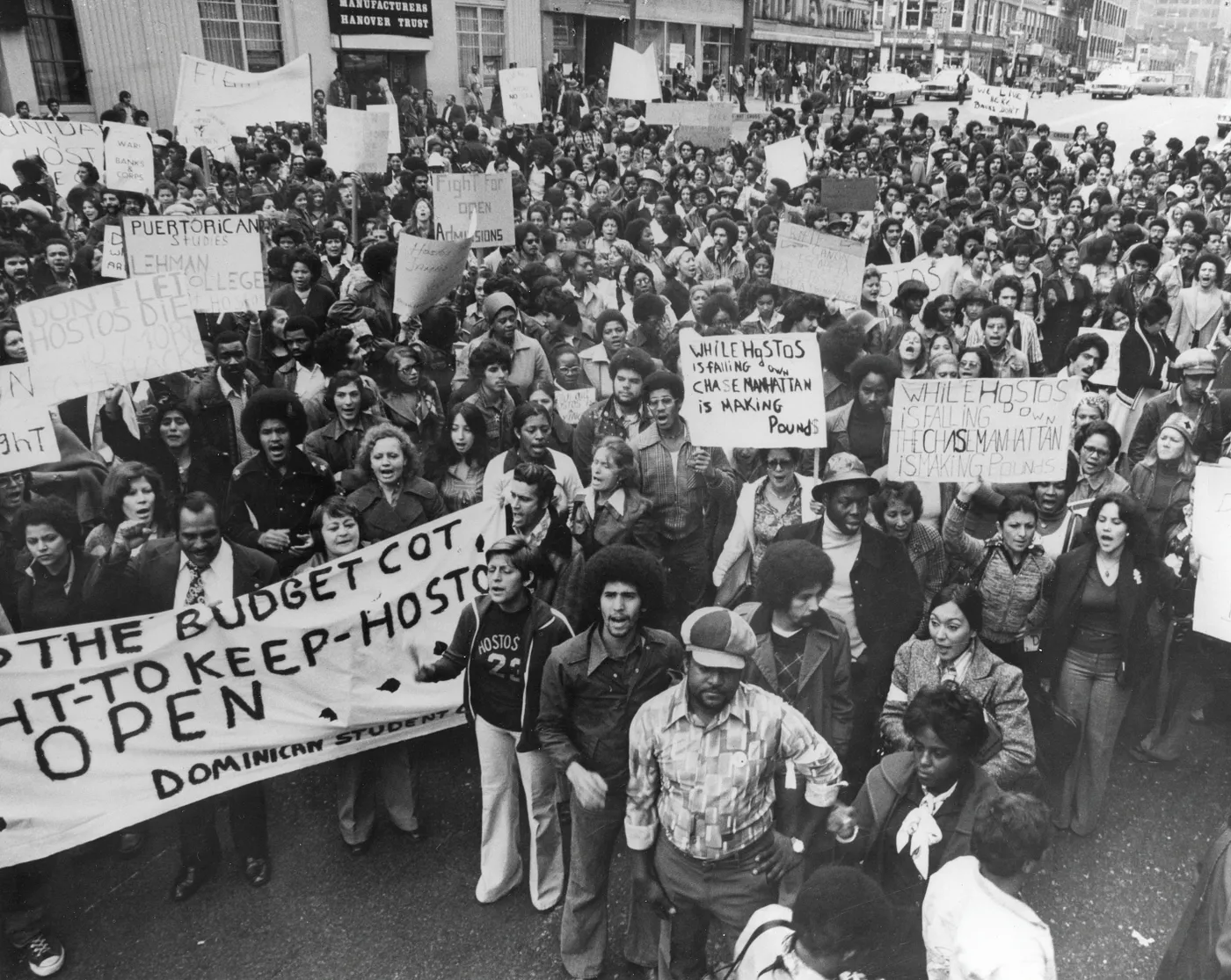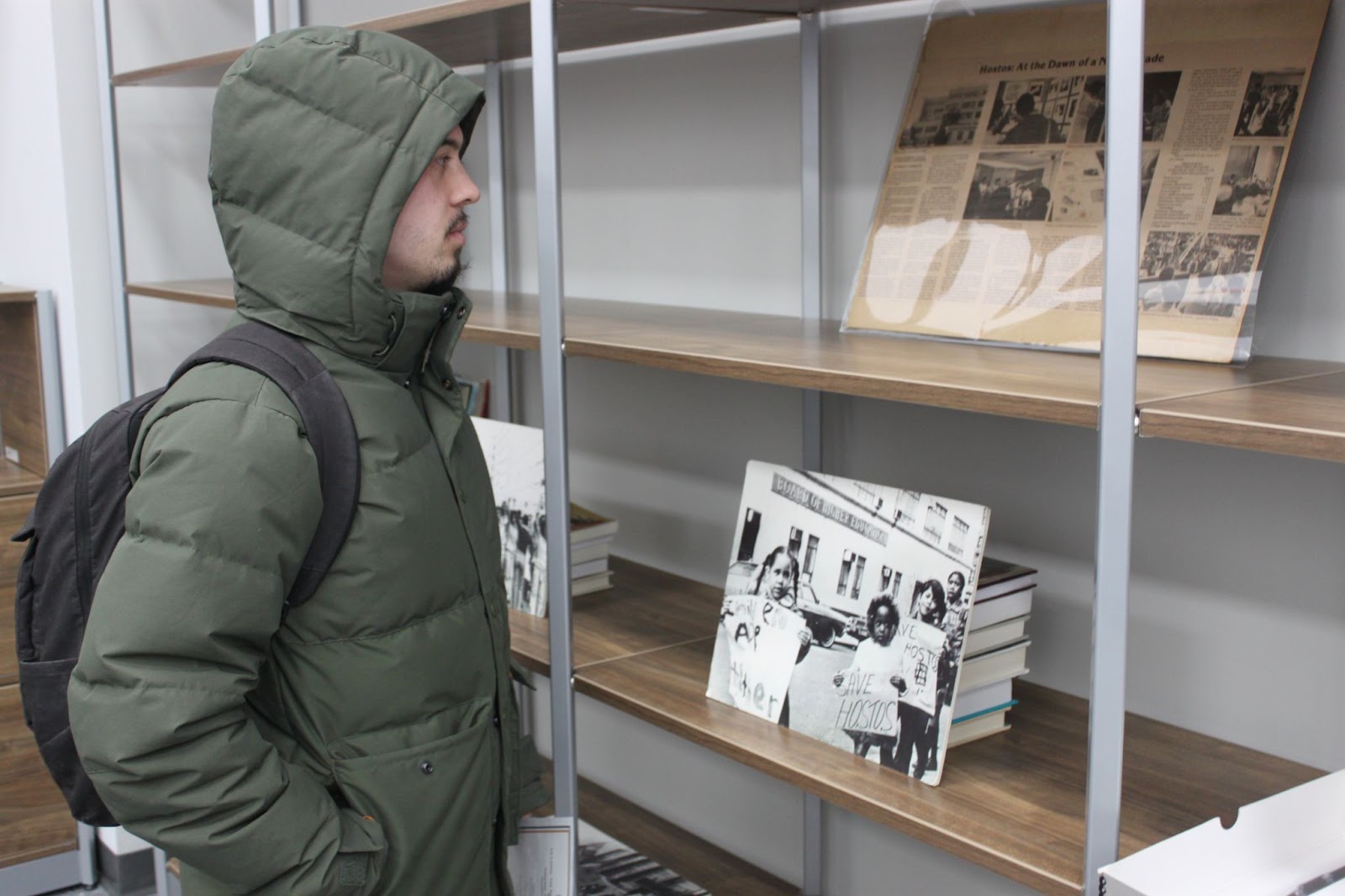
William Casari (pointin at the screen) served as the lead archivist for the exhibition.
Yesterday, the Office of the President and the Hostos Community College Library hosted a special presentation of "La Lucha: The Save Hostos Movement Online Exhibit." This virtual exhibit serves as a visual document of the College's formative first decade, marked by community activism. Professor and College Archivist, William Casari, led the presentation at the Hostos Research Center, providing attendees with a guided virtual tour of the exhibit.
The collection of photographs vividly captures the dynamic history of that era, showcasing not only political demonstrations but also student life, including basketball games, meetings, clubs, nursing pinning ceremonies, graduations, and daily activities that sustained the College. The College's website and JSTOR, an online database, now house hundreds of photographs documenting Hostos’ first years, available for download and future research endeavors.
Hostos President Daisy Cocco De Filippis expressed her delight with the outcome and shared personal anecdotes about her connections with retired community members who played pivotal roles during "La Lucha," a period of intensified struggle from 1973 to 1978.
For his part, Vice President of Student Development and Enrollment Management, La Toro Yates, shared remarks about his admiration for such a collection from which he saw an inspiring photo some years ago that led him to pursue a career at the College. He was followed by Chief Librarian, Madeline Ford, who commended Casari for his incredible commitment to the project.

The Hostos community, along with neighboring areas, fought to sustain the College amidst New York City's fiscal crisis in 1975. This collective effort involved three distinct struggles: initially securing the 500 Grand Concourse building, followed by persistent demonstrations to prevent the College's closure and merger with Bronx Community College, and ultimately securing funds for renovating the 500 Building. Despite challenges like fires and perceived abandonment by the City of New York, the local community persevered.
Casari expressed his satisfaction with the project, saying, "This has been many years in the making, and I am especially pleased with the fact that it is a reality and that it can be accessed by many for years to come."

Some photos are available for viewing at the Hostos Research Center.
The development of the "La Lucha: Save Hostos Online Exhibit" was made possible with the support of an Educating for Diversity grant funded by Ms. MacKenzie Scott's Gift: President's Initiatives.
For further information about the La Lucha website, please contact William Casari, Associate Professor and College Archivist, at wcasari@hostos.cuny.edu.